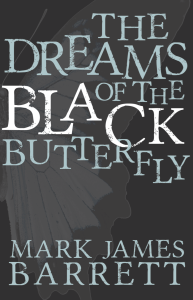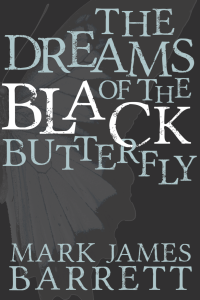Daniel Grimwald
Apr 5, 2016 | Literary, 1st pages

Winter in Vienna seemed infinitely long. Not that these temperatures for mid-February would have been unusual, but the cold season started much earlier this year than expected and had now continued for six months. The people longed for warmth and those who had holidays, flew away, towards the sun.
Daniel had missed many appointments and simply could not cancel any more. It seemed to him as if the Viennese population was afflicted with seasonal affective disorder and everyone seemed to want an appointment. Since he had changed from research to clinical psychology, he had his hands full.
On top of this was the call from his uncle. After many years in which there had been no reason to contact him, his uncle called today and asked if he could spare an hour for him. He said it was urgent and they should definitely meet. Since Uncle Gabriel was retired and had the time, he offered to come in person to Vienna to tell him what was going on.
So Daniel had invited him to his home this evening and he had called his wife to prepare for their visit. At around four o’ clock he closed his psychologist's practice in the 13th district and headed home via the subway. The ride home took half an hour, but he did not use this time as usual to get mentally and emotionally disengaged from work, but tried to find an answer to the following question: “What can my old uncle so desperately want from me?”
His uncle was about seventy years old and lived with Daniel's aunt on a farm near Miirzzuschlag, a little town, 200km from Vienna. His cousins hadn’t lived in Austria for years but Brigitte, the youngest daughter, studied medicine in Graz, the second largest city. What could the old man suddenly want from a psychologist? Or was it nothing to do with his profession? But then what else could it be?
As a student of human nature, Daniel was accustomed to predicting the reasons for the behaviour of people and mostly he succeeded. However, this time he could not imagine what this was about.
He opened the door of his apartment and the voices from the living room alerted him that his guests were already there.
“Uncle Gabriel, Aunt Lena! I never thought that we would ever see each other again,” he expressed with joy when he saw his relatives. “You have not changed, though. Have you discovered a secret elixir of life? “
“Thank you, my dear. You've grown into a real man. Come on, give us a hug.” His aunt and uncle hugged him and he greeted his wife with a sweet smile.
“How long has it been? Eight years? Ten years? Why do we see each other so rarely?” Daniel wondered aloud.
“You're always welcome to visit us, and you know it! Why have you not even come to us in the country for the weekend? The fresh air wouldn’t hurt you!” Aunt Lena, whose face had not changed in all the years, inquired.
If she had not had grey streaks in her hair, one would hardly be able to see that she had grown older. She still had the typical twinkles in her eyes, and her cheeks were red, just as Daniel had remembered. However, her eyes seemed to him to be gloomy at the moment.
“Yes, Aunt Lena. You know how it is. We work until we drop. But it's true; the 200km to Miirzzuschlag are no distance. I am ashamed! But now we are all here, let's celebrate that. Would you like Red or White to drink? “Daniel asked.
“This is fine already. The coffee Christine has made us is delicious. And the tap water tastes better than ours in Vienna,” his uncle praised the hospitality of Daniel's wife.
Daniel noticed that there was concern in his uncle’s eyes too.
“So, then I shall drink a Red, although Champagne would be more appropriate, now that I am seeing you both again!” the nephew said solemnly. “I always have a Blaufränkisch from your area in the house, so I can often think of you, even if we see you so rarely.”
Mark James Barrett
Mar 14, 2016 | 1st pages, Literary

The Dreams of the Black Butterfly
Iquitos, Peru
September 8th 1926
The doors of Cavendish House opened just after dawn, as the mournful call of the Common Potoo drifted through the mist. Lamps flared behind the shuttered windows, dimmed a little as they were adjusted, and began floating through the rooms of the big house under unseen hands. The sizzle of bacon on a skillet and the smell of coffee, murmured instructions growing louder. As the sun cleared the treetops, it was as though Pachamama herself was drawing the mist back into the jungle with a slow intake of breath.
A steady stream of tea chests and rough wooden crates were brought out and deposited on the gravel drive. Horse-drawn carts began to arrive from Iquitos Town. They queued beneath the giant trees, waiting to be loaded. The men got down, watered their horses and stood beside them smoking cigarettes in the warm, green shadows.
Alice Cavendish watched it all from the bottom of the long, sloping garden. For an hour she had been slumped over an iron table, chin resting on her folded arms, eyes following the labourers and servants as they went back and forth through the entrance to her home. Occasionally, she would hear a shrill cry from her mother upstairs, demanding something be done more quickly, more carefully, and yet the labourers seemed indifferent to her demands. They moved with a languor befitting the rising temperature.
The previous Christmas, Alice’s father had brought back a steel toy from England. It was a Noah’s Ark, almost as big as Alice herself. When the handle was wound, Noah, his family and the pairs of animals would clank along on a chain system,
Ralph Hancox
Mar 14, 2016 | Literary, 1st pages

Chapter 1
BY THE MOST exacting standards, Turnerville was doing its solemn duty at the War Memorial. The Civic Band, with trousers pressed, stood to the right of the memorial. The orderly lines of the Turnerville Branch of the Royal Canadian Legion stood in front. The civilians, the mothers and families, provided the left flank. On the stone steps, suitably reverent, stood the civic dignitaries: the mayor of Turnerville; three aldermen with war service; three Mothers of the Fallen; the chairman of the Board of Education; a minister of the United Church; and, the person to whom all looked, of whom all were aware, in whom all put their trust – the provincial representative and imposing figure of Cabinet Minister W. J. (Willy) Trundle.
Willy Trundle was an “aristocrat”; that is to say, he was one of the best citizens and he was in the government. His first traceable ancestor had come north from the uniting colonies of America in the invasion of 1775. This renegade abandoned soldiering and started again at his true occupation: tanning hides. Because of a tendency toward lustiness (shared by several of his descendants), he was forced into marriage with the daughter of an immigrant Calvinist.
Successive generations of Trundles inherited an ever-growing fortune. They were close with money – except when it was advantageous to spend it. They were reserved with their acquaintances – except when it was profitable to be open. Much respect accrued to the family over the years. It was the custom, in the generation before Willy, for townsfolk to doff their hats to the Trundles – men or women. But the most fascinating part of the Trundle ancestry, which explained much in Willy’s nature, occurred prior to the family records.
The father of that early invading colonist had slipped into a tannery in Southern parts to escape a mob. He had raped the daughter of a successful settler engaged in the slave trade. It was not the rape that had angered the mob so much as the suspicion that he carried Negro or Indian blood – or possibly both.
In some ways, Willy was a throwback to this renegade. He had shortened his name from Willibus Jeremiah to W. J. (Willy) – something his father would have forbidden. Willy was friendly and handsome; the look in his eye attracted speculation by many a woman. Willy stood on the steps of the War Memorial not only by virtue of his political distinction but also because of his war service. From a private in the First World War, he finished as a major in the Second.
Matthew J. Klingforth
Mar 1, 2016 | 1st pages, Literary

July Seventh was a night full of pain and afterbirth for my poor mother. She gasped, clutched and sweated while strange men inserted medieval devices into her vagina, “ripping me straight to my asshole,” as they mercilessly tried to dislodge my aberrantly large head. My poor mother— for all of her pain and suffering, she had me; my poor mother.
I was not exactly what you would call a handsome boy. As mentioned, my head was and still is twice the girth of any normal cranium, and my eyes, a deep brown, are set low and at the bulge of my nose, giving me a habitual idiotic expression. I was born with the Caucasian trump, practically albino and with a bushel of silver white hair to accompany my silver white eyebrows. I landed in this world an old soul and with my head of white and eyes of bronze, I intended to gorge on life to its very end.
“What's the matter with him, what's wrong with my baby?” poor mother yelled at the time of my delivery.
The doctors, who were virtually clueless on the movement of evolution, shifted eyebrows, huddled together and deduced Down Syndrome…that was pretty much the end. However, and with incredulous temerity, I continued to age.
I am sad to note that none of my abnormalities cleared up, neither medically nor miraculously, and that I am not the ugly duckling, just plain ugly. This is not my fault, but through your disgrace, it has become my sin. Though it must be mentioned that I do not blame my inappropriate appearance for my horror-filled conclusion, as I see now that it was I who allowed these things to happen; but I am confident that no matter the end, love would have been a tough battle for me since the time of my conception.
The story goes like this, mother was a single, overweight woman, and my father, who I have no recollection of, was just some drunk slouch with three inch beer goggles.
K.M. Malloy
Feb 26, 2016 | 1st pages, Literary

“And our society will never be great until our cities are great. Today the frontier of imagination and innovation is inside those cities and not beyond their borders. New experiments are already going on.”
-President Lyndon B. Johnson May 22, 1964-
In 1964, President Johnson challenged the nation to rise up against poverty and racism to create a Great Society that would become the beacon of enlightenment to guide the rest of the world. His vision promised peace and equality, with education and healthcare for every inhabitant regardless of economic status, race, or gender.
In 1971, frustrated by the country’s lack of belief and progress in accomplishing their leader’s vision, the Great Society Extremists urged Johnson to diverge from the United States in order to form a new nation in which they would be free to create a country that would bring his dream to fruition in its totality. In 1979, after almost a decade of debate and negotiations, an agreement was reached between the States and the Extremists in the Secession Trade Treaty. Sections of Wyoming, Montana, Iowa, and the Dakotas seceded from the Union to join as one as the United Community of Johnson.
In exchange for the land that would become their new country, lumber, coal, cattle, and agriculture were to be supplied to the States from the United Community to repay the debt for the land, and ensure the persistence of peace between the two nations. L.B.J. resigned as president of the United States, and took his place as Leader of the United Community to embark upon the greatest social reform movement the world has ever known.
John’s Town was one of the first in the creation of the Great Society cities.
Colleen Gareau
Feb 24, 2016 | 1st pages, Literary

Chapter One
The waves of pain surge through her, gripping deeper than she had imagined possible. Her muscles and ligaments entwine like fisherman’s knots, twisting, twisting. Pulling tight. A trough arrives, bringing a minute or two of rest. Lizzie walks with care, a novice skater on hard ice afraid of falling through. She pauses when her insides seize then continues through the building. She locks the door to the women’s room and spreads layer upon layer of hand towel on the floor then strips out of her clothes, stepping on the legs of her pants to pull them off when she cannot bend. Mentally reviewing the next steps, she opens a canvas bag and sets out the items she will need, trying to maintain her wits.
Girls do this everyday, she reminds herself. Give birth alone. Babies born in toilets, at schools, in alleyways, even in their own beds with parents sleeping in the next room. This soothes her until a contraction grabs her in its fist and squeezes. Reading about a thing and doing it are as closely related as are painting a portrait and digging a ditch. There is no escaping the pain now. There is just breathing to get past the next crest. If only she’d gotten farther away.
She closes her eyes and glimpses snippets from her life that flicker at random as though she is dying. The green tree line as seen from a spot on the cliff overlooking the river, the curl of Rue’s lip as he crooned into a microphone, the stain of wild blueberries on her fingertips. Life playing out in your mind is supposed to happen before death. Is that what birth is? she wonders. The death of something? Of what? Childhood? Being cared for? She snorts at this. Who has ever cared for her?
The next contraction erases the bitterness from her mind. A moan surges inside her and carries the enormity of her effort from her womb to the rough north country beyond the door. She isn’t Lizzie now – just an animal squatting on the ground, her feet in her own fluids. The smell of iron and sweat and something wild surrounds her. Saliva fills her mouth and she retches, vomiting into the toilet.












